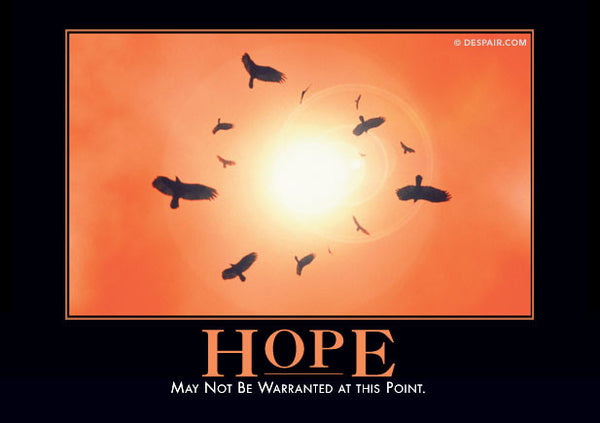In an epoch marked by tumult and disillusionment, the Bahá’í teachings illuminate a pathway imbued with hope, offering a refreshing perspective to navigate the pervasive despair. These teachings serve not only as a beacon of solace but also as a catalyst for profound transformation within the individual and collective spheres. The essence of Bahá’í philosophy lies in the possibility of transcending despair through understanding, action, and the cultivation of an expansive worldview. This article endeavors to explore the intricate tapestry of Bahá’í principles that nourish hope amidst adversity.
To embark on this exploration, we must first demystify the concept of hope as envisaged within Bahá’í teachings. Hope, in this context, is not a passive longing for better circumstances; rather, it constitutes a dynamic force that compels individuals toward constructive engagement with the world. Bahá’í writings articulate that true hope emanates from recognition of the inherent potential for goodness within humanity. This perspective encourages individuals to transcend despair by actively participating in the betterment of society.
Central to the Bahá’í teachings is the assertion that humanity is inextricably linked. This interconnectedness creates fertile ground for collective endeavors aimed at healing the world. The teachings encourage believers to recognize the unity of the human race, which forms the bedrock of hope. By fostering collaborative initiatives across diverse cultures, traditions, and beliefs, individuals can cultivate a global spirit of empathy and solidarity. This mutual reliance reinforces the notion that despair may be confronted through unified action, making the seemingly insurmountable challenges of our times more manageable.
Additionally, the Bahá’í faith advocates for the progressive revelation of truth through successive messengers of God, each of whom imparts wisdom pertinent to their respective epochs. This continuous flow of divine guidance underscores a foundational principle of the faith: the belief in the essential goodness of humanity and the ultimate emergence of a just and peaceful world. By perceiving each challenge as a stepping stone toward enlightenment and advancement, believers can transform even the direst situations into opportunities for growth and development.
Within the framework of the Bahá’í community, the emphasis on consultation and collaborative decision-making fosters resilience and optimism, even in the face of crises. The process of consultation — characterized by open dialogue and collective problem-solving — not only sparks creativity but also engenders a profound sense of ownership and responsibility among participants. Such engagement ensures that individuals feel empowered to enact change, imbuing them with hope that their contributions are valuable and impactful.
Moreover, the Bahá’í teachings elucidate the concept of spiritual and material prosperity, positing that true well-being encompasses both the physical and spiritual dimensions. Economic challenges, social injustice, and environmental degradation often contribute to collective despair. Bahá’í principles advocate for a balanced approach to development that harmonizes material progress with spiritual enrichment. This integrated perspective equips communities with the tools to navigate adversity, reinforcing the belief that hope is grounded in the realization of collective aspirations for a brighter future.
In examining the role of education within Bahá’í teachings, we find yet another avenue through which hope is cultivated. Education is perceived not merely as an academic endeavor but as a holistic process that nurtures the intellect, character, and spirit. The promotion of universal education is fundamental to alleviating despair, as it empowers individuals with the knowledge and skills requisite for engaging with contemporary challenges. By instilling moral values alongside intellectual rigor, the Bahá’í approach to education molds individuals capable of contributing constructively to society, thereby sowing seeds of hope for future generations.
As we reflect upon the challenges that besiege our world — from political strife to ecological crises — it becomes evident that despair can overshadow hope if left unexamined. However, the teachings of Bahá’u’lláh furnish us with a powerful encouragement to rise above adversity. They invite individuals to adopt a panoramic worldview — one that transcends personal grievances to embrace a collective purpose. This altered perception enables individuals to engage with life’s challenges in a manner that is not only constructive but also infused with optimism.
In conclusion, the Bahá’í message is an elaborate tapestry rich with the threads of hope, interwoven with principles of unity, education, and active engagement. In the face of despondency, these teachings offer a compelling perspective that inspires individuals and communities to embrace the promise of a brighter future. Hope is indeed an active choice, cultivated through understanding and deliberate action. By embracing these teachings, individuals can transform despair into a powerful impetus for action, fostering a world that reflects the harmony and unity inherent in the Bahá’í vision. In this paradigm, hope is not a distant aspiration but a lived reality, beckoning all to participate in the unfolding narrative of humanity’s collective progress.
